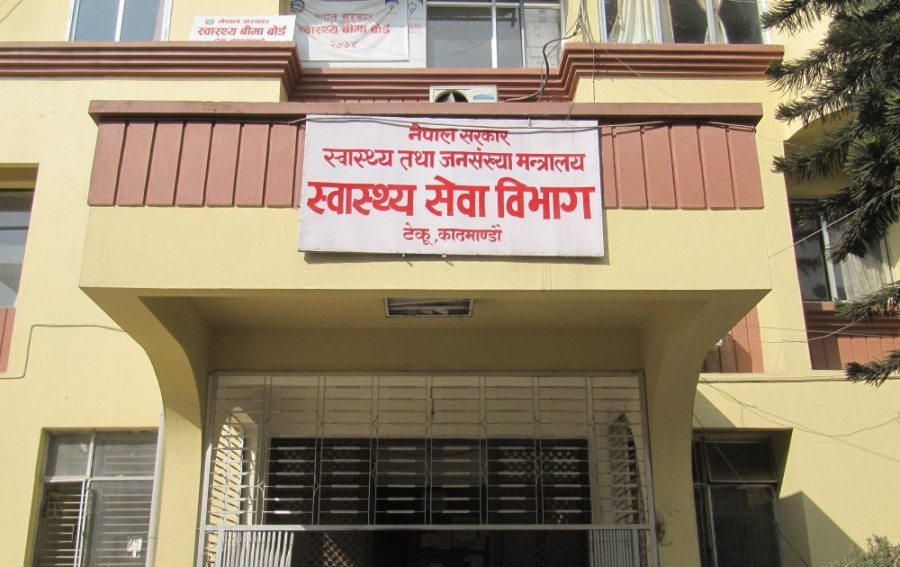Health
Health workers alerted countrywide about a possible outbreak of vector-borne diseases
Health Ministry not to procure test kits to examine dengue cases this year, says senior official.
Arjun Poudel
Epidemiology and Disease Control Division has alerted health workers serving in state-run health facilities across the country about a possible outbreak of vector-borne diseases, which include dengue, malaria, kala-azar, Japanese encephalitis and scrub typhus.
The move comes amid reports of dengue and other vector-borne diseases in various districts even before a rise in temperature.
"We have alerted health workers serving across the country about the risk of possible outbreaks," Prakash Shah, chief of vector control section at the division, told the Post. "We have also sensitised provincial governments and the local units about a looming threat from vector-borne diseases."
Every year, thousands of people get infected by vector-borne diseases in different parts of the country. There have been sporadic cases of dengue throughout this year. The latest case of dengue was reported last week in Dadeldhura district, according to Shah.
Last year, dengue was reported in 68 districts. The disease had killed six people and infected over 16,000 others.
Meanwhile, the division has decided not to procure test kits for the examination of the dengue virus.
"Test kits are not needed for the examination of dengue virus. The treatment protocol of the government prioritises symptomatic treatment of patients," said Shah. "Test kits are costly and only a few hospitals and the central lab have the capacity to carry out the test. So we prefer symptomatic treatment."
Of the four serotypes of the dengue virus, serotype-2 was the one that spread last year. Uttam Raj Pyakurel, a senior vector control inspector at the division said all four types of viruses exist in the country, and it would be risky if people, who were already infected by a serotype, got infected again with new serotype of the virus.
"We have alerted all 753 local units and seven provincial governments about the outbreak risk," said Pyakurel. "Some local units have started awareness drives against the virus and other diseases."
Dengue spreading mosquitoes—Aedes aegypti and Aedes albopictus— have reached most of the districts of the country and rise in temperature has exacerbated the problems, according to Pyakurel. Female Aedes aegypti and Aedes albopictus are also known to transmit Chikungunya, Yellow fever, and the Zika virus.
Dr Megnath Dhimal, chief researcher at Nepal Health Research Council, said that it was high time for the government and other concerned agencies to invest and act to prevent possible outbreaks.
"We have already experienced large scale epidemics," said Dhimal. "Our own experience shows that it will be difficult to control if we do not act in advance."
Dhimal blamed the rise in temperature for a surge in the vector-borne diseases, including dengue.
In Nepal, the average annual mean temperature may see a rise by 0.92-1.07 degrees Celsius in the medium-term period (2016-2045) and 1.30-1.82 degrees Celsius in the long-term period (2036-2065), according to a study carried out in coordination with the International Centre for Integrated Mountain Development (ICIMOD).
The latest study by the Department of Hydrology and Meteorology shows that the average annual maximum temperature of the country has risen by 0.056 degrees Celsius between 1971 and 2014.
Similarly, 45 districts out of 77 across the country were affected by Malaria in 2019. Kalajar was reported in 51 districts and Scrub Typhus in 63 districts.




 9.7°C Kathmandu
9.7°C Kathmandu















